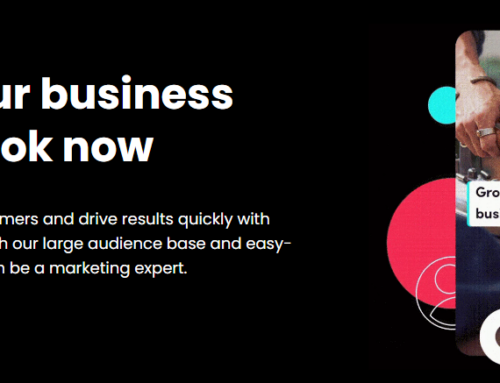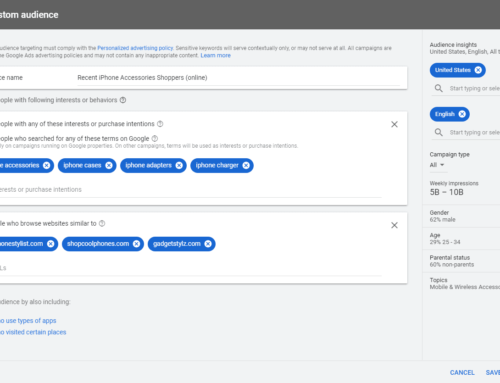Beyond looking at overall campaign performance, how can you tell whether your PPC agency is doing a good job? That can be a difficult question to answer. In this article, I’m going to provide you with 5 ways to assess your PPC agency. This applies to small and large agencies as well as freelancers.
1. Transparency
In order to assess your agency’s performance, you must be able to see what’s going on. This starts with transparency. Don’t ever work with an agency that will not provide you access to all of your campaign details and KPIs. The easiest way to do this is for you to own the ad accounts, while they simply have access to manage your campaigns. This is the model that most PPC agencies follow. There is absolutely no benefit in your agency running campaigns within their own ad accounts. If they try to pitch you on this you should run away.
If you’re already in this type of relationship with an agency, I suggest you ask them what would happen if you wanted to bring management in-house. This will at least prepare you for a potentially bad scenario.
2. Campaign Performance
Clearly, the most important aspect of these services is how your campaigns are performing. For most PPC advertisers, you should be looking at your conversion numbers objectively.
You should always measure the KPIs against your targets and evaluate based on the long-term trend, 3-6 months at least. Don’t have targets? That’s a big problem right there… what exactly is your agency working towards?
When considering agency performance you should never just look at what happened one or two months ago. In most markets, there is seasonality and normal ups and downs beyond your agency’s control. To help with this, your agency should always provide a historical table in their periodic reports so you can easily see how things are going over the past 6 to 12 months.
For online stores your KPIs will mainly include:
- Cost
- Sales Volume
- Sales Value
- ROAS (return on ad spend)
- Performance relative to budget, e.g. if you’re scaling ad spend you should expect ROAS efficiency to dip
- Related KPIs such as physical store visits where appropriate
For most other types of businesses you will be looking at lead generation performance:
- Cost
- Total Leads
- Cost per lead – often expressed as cost/conversion or cost per action (CPA)
- Performance relative to budget, e.g. if you’re scaling you should expect your CPA to increase some
- Lead Quality*
*Lead quality is a bit interesting. You can objectively measure lead quality based on your closed lead rate or even sales value. But you may also want to subjectively measure lead quality. Importantly, your agency can pull some levers to control the quality but you are also responsible for this in the way you present your offer, the quality of your sales team and process, pitch, and more. Also, if you don’t have any integration between your CRM and ad account, you aren’t feeding lead quality data back into the system. This makes it impossible for your agency to steer optimization based on closed deals. Check out this article about improving lead quality.
3. Reporting
Report Content
While there is no one best way to provide reports, they should always at least include:
- All major KPIs and variance from applicable goals
- Change from the previous reporting period
- Historical trends (typically the past 6 or 12 months)
- Campaign level performance metrics
- Some level of detail breakouts for important segments such as devices, audiences, keywords, etc.
At our agency, we provide a monthly report with a write-up. Some agencies do this weekly. Either way, your write-up needs to cover:
- An explanation for why important KPIs increased or decreased in the period
- A description of what new initiatives, changes, and optimizations were implemented
- Observations of what’s working well and what’s not working well
- Recommended changes and new initiatives for the next period to improve performance
- Notes on any upcoming changes necessitated by platform updates, (e.g. ad formats changing, campaign type being discontinued, etc.)
If your agency provides monthly reporting they should also offer you a way to check performance yourself in between reports. We provide a dashboard that’s available 24/7 for our clients. If you are already getting weekly reports that should be often enough that you don’t need additional access.
PPC Agency Check-In Meetings
You should be able to meet with your agency at least once a month to review reports and discuss strategy and recommendations. Likewise, you should be able to occasionally initiate a meeting at any time if you have urgent matters to discuss. While we prefer to schedule meetings in advance, we do pick up the phone if you call us. We may not be able to have an ad hoc 1-hour call but we can usually address anything urgent and/or schedule more time to dig into the issue some more.
If your agency doesn’t offer regular check-in meetings you are going to eventually have a communication breakdown. You can get along fairly well with email, slack, or whatever if you have a simple and mature campaign, but things do fall through the cracks when you don’t actually speak once in a while.
4. Campaign Management
Training and Certification
Most reputable PPC agencies carry “Partner” credentials for the major ad platforms they work with. If they have it they usually won’t make it a secret and will plaster it all over their website and collateral materials.
If your agency doesn’t have these credentials or tells you they are “easy and pointless to get” you should be concerned about how well your campaigns are being run. I mean if it’s so easy, why haven’t they bothered?
In terms of what getting the Partner credential means:
- Partners typically must manage a minimum amount of ad spend and/or clients
- Partners must have certified PPC managers, most programs required annual recertification (multiple choice exams)
- Partners must follow a number of platform best practices
The main benefits of working with a Partner agency are that they may receive additional training, have access to higher quality support options, and are able to access platform beta features that non-Partner agencies cannot.
Besides being certified, individual PPC managers should have supplemental training by taking third-party courses as well as monitoring industry news for new platform features and industry trends. After all, your campaigns are only ever as good as the person creating and managing them. Ideally, your agency will set you up with a seasoned pro, but if not, you should ensure they at least are well trained and have a solid support system in place to help them succeed.
As for myself, I spend about 20 hours per month on self-learning (watching relevant podcasts, reading articles, and speaking with peers) to keep my skills sharp.
SOPs (standard operating procedures)
Established agencies will have usually developed SOPs for how to build, manage, and report on campaigns. This means that there is largely consistency in the way everybody at the agency approaches these tasks.
It also ensures that things aren’t missed during the creation and management of your campaigns. For example, forgetting to check search terms reports for a couple of months can mean a ton of money is being wasted on irrelevant queries.
Optimization Candence
New campaigns require a lot of monitoring and maintenance, particularly in the first few weeks. Your PPC manager should be in the account at least every couple of days evaluating and tweaking campaigns as appropriate. Mature campaigns (several months old) require less hands-on work. PPC managers should, at least IMO, be optimizing on a weekly schedule.
This includes:
- review of recent performance and address any anomalies
- review and implementation or dismissal of any platform recommendations
- adjust bids and tweak bid adjustments (manual bidding)
- adjust campaign budgets where appropriate
- adding new audiences (remarketing, in-market, affinity, custom)
- review keyword and search terms reports, add/pause keywords, add negatives
- update creatives as needed
Less often your PPC managers should be doing:
- review and adjustment of bidding strategies, e.g. should a campaign be using Max Conv. Value instead of ECPC
- implementing/testing new ad platform features and campaign types
- adjusting strategy in concert with you, e.g. ‘should we be testing competitor brand keywords?’
- running experiments to test different bidding or other options, broad vs. phrase match keywords, different landing pages, key selling points, etc.
- checking the overall health and optimizing Merchant Center (shopping advertisers)
Account Monitoring
Bad things can happen to your campaigns between the times your PPC manager is performing optimization. This can include runaway spending, account suspensions, broken conversion tracking, and more.
Your agency should be using some method to monitor your campaigns for major problems. This can be done with automation such as rules or scripts, or with third-party management tools.
At my agency, we use scripts and our reporting tool to look at account numbers each morning. Any major ups or downs are easy to spot and troubleshoot. Furthermore, we use Pingdom to monitor that your website/landing pages are up 24/7. We receive a notice if your landing page goes down and will pause your campaigns until the issue is resolved.
Ideally, your agency should also cross-audit your campaigns. This means having another PPC manager review somebody else’s work periodically. It can be easy to get myopic when you’ve been managing a campaign for a long time. This can help spot new opportunities and any issues that may have cropped up in old campaigns.
Innovation
Is your agency using the most modern methods and best practices? If your campaigns are still using SKAGs and manual bidding your account is in trouble. If your agency hasn’t at least mentioned Performance-Max by now, you are probably missing out on great opportunities.
When was the last time your PPC agency told you about new Google Ads or Facebook Ads features? If the answer is never you should be feeling a little uncomfortable now. In this case, either your agency is just implementing this stuff in the background or isn’t on top of new features.
Ad platforms constantly roll out changes and new features. When a change affects your account the PPC agency needs to address that. It could mean making a minor or major revision to one or more of your campaigns. Failure to do that could put you behind your competition.
Likewise, your agency should be taking advantage of new features to improve your campaign performance.
Automation
Good agencies use automation to eliminate repetitive work that doesn’t add value to campaigns. In addition, automation such as Google’s Smart Bidding and Responsive Search Ads can enhance performance well beyond what manual efforts offer.
Most agencies should be automating the following things:
- reporting, other than the write-up
- monitoring for anomalies such as suspensions, over or under spending, zero conversions, etc.
- using automated bidding and creative variations/combinations wherever possible
- implementing automated campaign types such as Performance-Max
Also, avoid agencies that charge hourly fees. They will tend to perform everything manually to increase their revenue while not implementing automation. Likewise, avoid agencies that want to completely automate your account to a point where they aren’t performing regular optimization. As much as we’d all love ‘set it and forget it’ to work it simply doesn’t.
5. Customer Service
Key Contact Person
First, who are you regularly meeting with? Is it the person that’s managing your campaigns or a sales rep of some kind? If your primary contact is not able to describe your campaign strategy that’s a concern. Many agencies do operate this way and some have figured out how to stay on top of accounts while others just wing it. Ideally, you should be in touch with the person that’s hands on, but if not, you should be confident that your main contact is well aware of what’s going on.
Responsiveness
Some agencies provide an SLA (service level agreement) on response times for your requests. This is a bit of a slippery slope since not all requests are created equal, the agency can be super busy at certain times, key people go on vacation, and so forth.
The most important thing is that you feel like your PPC agency is attending to your needs in a timely way. Asking why your campaigns suddenly stopped running is much different than requesting a keyword report for the past 12 months segmented by match type and user intent. Clearly, when there is something urgent you need an urgent response.
Most good PPC agencies will respond to urgent requests on the same business day. In addition, they will provide a way to get in touch after hours should you be in a pickle. For example, if your website is down you should be able to get in touch with somebody that can pause your campaigns. Here at Ten Thousand Foot View somebody is always able to respond quickly in an emergency except overnight… we have to sleep.
In my view, it is not acceptable to wait several days for a response to your email. Our PPC Managers will generally send you a “received your note and working on it” response if they are unable to formulate a complete answer that day, or the next day if it’s already late afternoon or evening.
Summary
Whether you’re working with a part-time freelancer or a massive PPC conglomerate, it’s important to know whether they are delivering what you need. Reviewing these 5 elements will help you determine if they are, in fact, a good fit and performing at a high level.






